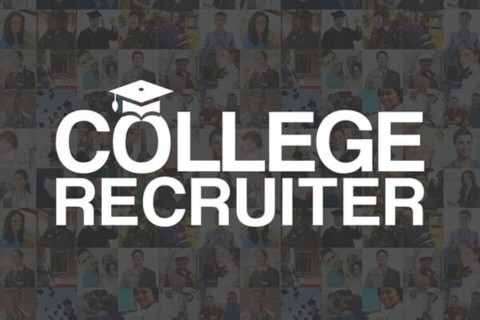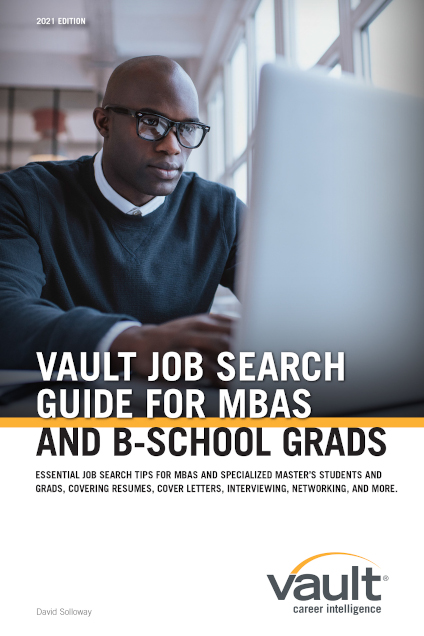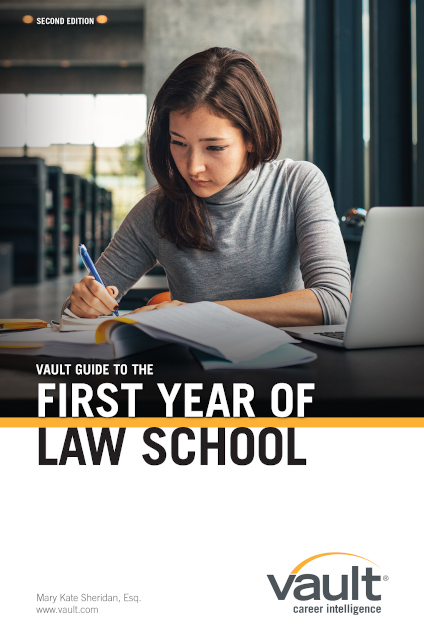While the vast majority of Wesleyan alumni eventually complete graduate or professional degrees, the decision of which degree and when to pursue it should be very carefully considered. You will be making a great investment of time, lost income, and tuition and fees, expenditures that should be balanced by your expected return on investment and commitment to the work you seek.
In many fields of arts and sciences, a PhD is a necessary step toward a career in academe, and may also be necessary for those in industry, the nonprofit sector, or the government. Here are the steps to take when considering graduate education:
Is a graduate degree necessary? Ask professionals in your field of interest whether a graduate degree is necessary, whether a master’s is sufficient, and what programs they find to be well respected. Start with referrals from faculty, and expand on that list with alumni found on Wesconnect and LinkedIn. Familiarize yourself with the current state of the job market for those with that degree, and what it’s forecasted to be by the time you finish.
Begin researching programs.
Ask Wesleyan faculty about their experiences and recommendations. Think about the research you intend to conduct—who is doing cutting-edge work in that field? Who is working on research questions aligned with your interests? Could they be your thesis advisor? Consider reaching out to graduate school faculty with whom you have a particular interest in working. Also, check to see if the department publishes the employment outcomes of its graduates. Will you have access to the university’s career office, and is there a dedicated advisor for graduate students on staff?
Consider how you will finance your degree. If you are seeking a Ph.D., look for programs for which tuition is waived and where you will be able to support yourself through either teaching or research. If you will be teaching, ask about summer stipends as well. For master’s programs, explore all your options for financial aid in the form of grants and federal loans before resorting to private loans, which can carry high-interest rates. Public libraries—including the Russell Library on Broad Street in Middletown—are the best source of information about grants, as they often subscribe to databases that will allow you to search for private funding based on your personal criteria. Such tools will save you considerable time over-relying on the internet.
Prepare for the GRE.
Some programs require only the general exam, but many want to see scores from subject tests as well. Consider taking the GRE while you’re still at Wesleyan and in “test-taking mode” even if you don’t plan to apply right away—the scores are good for five years. Take a computer-based sample test to gauge your performance before paying for an expensive test preparation program.
Write your personal statement.
Your personal statement should focus on why that department is the best fit for you in terms of both your academic interests and career goals. A good source for examples is Donald Asher’s Graduate Admission Essays.
If applying for a PhD, explain the research question you wish to conduct and how you plan to go about it. Be specific about with whom you would work, and cite at least two to three faculty members who are doing relevant research. For PhD programs it is the faculty themselves, not an admission office, who are determining your fate, and they will want to know from the start the likely candidates to be your dissertation advisor.
Line up references.
Consider whom to ask carefully. Ph.D. programs will want academic references, while some practical master’s programs may favor a mix of professors and employment supervisors. Plan to speak with potential references about your career plans and why you chose that particular degree and the schools to which you are applying. Give recommenders plenty of time—six weeks is a good target—to complete the relevant forms. This process is very time-consuming, and you will need them to be thoughtful and be able to put in the time necessary to best represent your candidacy. Check-in with them well before the deadlines to ensure that they are on track to meet them.
For more preparation advice, see the following pieces on graduate school applications, courtesy of the National Association of Colleges and Employers.
-
Grad School: To Go or Not to Go
Should you go on to graduate school? Is it the right move for you at this point in your career? Give your decision careful consideration, weighing all the factors, including:
YOUR CAREER PATH
What do you truly want to do? What excites you more than anything? If it’s a profession you absolutely, positively must pursue, and it requires advanced education, then you’re probably an excellent candidate for further education.
“You go to graduate school to become an expert in a certain area or to be a professional in certain industries, like law, medicine, or engineering,” explains Cindy Parnell, director of career services at Arizona State University.INVESTMENT OF TIME, MONEY, AND ENERGY
Graduate students find out very quickly that their days of frat parties, general education courses, and hanging out with friends are over—graduate school is, well, about school.ARE YOU READY TO COMMIT?
Also consider your post-undergraduate life plans. Are marriage and family in your immediate future? Graduate school can put a huge financial strain on a young couple already facing student loan debt, not to mention the burden of the time you’ll be spending studying. Be sure you—and your family—are ready for the added responsibility of a few more years of schooling.YOUR MARKETABILITY TO AN EMPLOYER
Not every profession requires an advanced degree, so do some research on potential career opportunities before committing to more education.
“Students run the risk of thinking today that grad school might be the answer. Depending on the program, you want to have the fieldwork experience as well as grad school. If you go on to grad school without having any fieldwork experience, you run the risk of being over-educated [and under-experienced],” says Shayne Bernstein, associate director, career development services, at Hunter College.OPPORTUNITIES WITHIN THE FIELD
If you do plan to work before going back for that advanced degree, will more education help you move up the ranks at your company? Have you landed a job in your undergraduate area of study, and now you’re thinking you want to enhance what you’ve learned, or pursue a totally new field? Depending on your professional career path, advanced education may help you reach your career goals.YOUR MOTIVATION
Can’t think of what else to do next? Don’t think of graduate school as a way to hide from the job search. You face wasting a lot of resources.Bernstein suggests giving careful consideration to your decision to pursue graduate school.
“Don’t go if you’re not passionate about something,” she stresses. “Don’t go for the sake of going to graduate school. Go because you’re passionate and you want to develop your skill set in a certain area.”
Courtesy of the National Association of Colleges and Employers.
-
Grad School: Application Timeline
Follow this general timeline to keep yourself on track. Time frames are approximate: Check the deadlines for your schools of interest and adjust accordingly.
JUNIOR YEAR (FALL)
Many graduate schools look at applicants’ grades from the last two years of undergraduate courses. If your GPA is an issue, it’s time to pull your grades up.JUNIOR YEAR (SPRING)
Decide which fields interest you, then start looking for programs and schools that match your interests.As part of your research, investigate what kind of financial aid options will be available to you at the various institutions, including grants, loans, fellowships, and assistantships. This will help you weed out programs that you can’t pursue because they don’t offer the level of support you need.
Schedule your entrance exams. You may want to take these exams in the spring of your junior year so you get them out of the way (and have time to retake them if necessary) and can spend the fall filling out your applications and working on your writing samples.
SUMMER BEFORE SENIOR YEAR
Most graduate schools look for well-rounded individuals with good grades and some relevant work experience on their resumes. An internship can be an excellent way to gain some professional experience in your chosen field. In some fields, volunteer experiences are also helpful—provided they give you relevant experience and are not simply “envelope stuffing” exercises. Stop in at your college’s career center for help in identifying internship and volunteer opportunities.SENIOR YEAR (FALL)
Get your transcripts from all your post-secondary education, including an up-to-date transcript for your current institution. Be prepared to have transcripts from study-abroad and other institutions that transferred credits.Line up references and provide them with the information they need to write a complete reference.
Schedule your entrance exams. If you weren’t happy with your scores or decided to give yourself more time to prepare, you can take your entrance exams in the fall. (Some exams offer multiple test dates in the fall, enabling you to retake your exams again if necessary.)
Fill out your applications. Take your time, read directions carefully, and check and re-check your applications to ensure they are complete and error-free. Have someone proofread your applications.
SENIOR YEAR (MID-TERM BREAK/JANUARY)
Submit your applications.SENIOR YEAR (SPRING)
This is when acceptance letters begin to arrive. If you have applied to and been accepted at multiple schools, you may want to pay another visit to your top choices. Talk about your plans with a trusted faculty member or a career counselor at your undergraduate institution.Fill out the FAFSA (Free Application for Federal Student Aid) if you plan to apply for financial aid. (You’ll need your prior year’s income tax return to complete this form.)
Once you make your decision, notify the school of your acceptance. As a courtesy, tell the other schools that you are declining their offers.
If you’ll be relocating for graduate school, start researching housing options in your new location. Can you afford to live alone, or will you need to find a roommate? Does the school offer assistance with housing or pairing graduate students as roommates? If so, call on those resources.
Courtesy of the National Association of Colleges and Employers.
-
Grad School: Getting In
Fast Fact: Each year, approximately one-quarter of the graduating class goes on to graduate school.
Getting into grad school is far from a slam-dunk. Undergraduates are up against not only their peers, but also nontraditional students who have been in the work force and are returning to school enhance to their skills.
Set yourself apart from the competition and stand out to graduate school admissions recruiters with these helpful tips.
DO YOUR HOMEWORK.
Thoroughly research the schools that fit your area of concentration. Take a look at the scope of their programs, investigate their requirements, find out about financial aid options and processes, and so forth. Get the lay of the land. Graduate school admissions recruiters want to see that you are genuinely interested in attending their institution, so learn all you can and make an informed decision about the schools you would like to attend.ASK QUESTIONS.
Tammy Manka, associate director of graduate admissions at Marywood University, recommends scheduling a campus visit (or two) to get a better feel for a school than what’s on the website or in marketing materials.And ask plenty of questions. “Ask for a meeting within the department you’re interested in. Research the area where the school is located. Is it a place you can see yourself living for two-plus years? And ask to speak to an alum, if possible,” she suggests.
In addition, “Be sure you have a good understanding of what the program offers that you’re looking for, and what you’re looking for that it doesn’t offer,” says Ellen Driscoll, associate director of graduate admission at Suffolk University in Boston. “Be realistic. Given what you know about the program, be honest with yourself about your appropriateness as a candidate.”
UNDERSTAND EACH SCHOOL’S APPLICATION PROCESS.
Once you’ve done your homework and narrowed down your choice of schools, make sure you have your materials together before you start applying. Every school is different, and you may not have to send the same packet of information to each one.Do the schools require scores from standardized tests like the GRE, MCAT, or GMAT? Give yourself plenty of time to take (and retake, if necessary) the required tests.
Do you need to provide a writing sample? Carefully craft your sample.
“We look for quality as well as content,” Manka says. “We want to see that the applicant can write at a grad school level. Think about what you’re writing.”
Do you need a list of references? Lisa Palacios, director of student recruitment at the University of Texas – San Antonio, recommends putting together a packet of information for references—a school brochure, information about the program you’re applying for, and a copy of your resume so they can refer to it if necessary. Your references are vouching for your academic performance as well as professionalism, so give them the tools they need to write you a glowing referral.
DON’T PROCRASTINATE.
Graduate schools have firm deadlines that they expect applicants to meet. These deadlines are in place for a number of reasons, not least of which is financial aid. Make sure you give yourself enough time to complete in-depth documents like the FAFSA (Free Application for Student Aid) or any financial paperwork. Keep track of necessary deadlines. Don’t leave everything until the last minute.TAILOR YOUR MATERIALS AND CHECK YOUR WORK.
It sounds simple, but Driscoll recommends applicants read directions carefully.
“Make sure you’re sending admissions materials to the appropriate place, that you have all materials in the form that the school requests, and that you have all of the credentials the school is asking for,” she says.Manka echoes that, and says that one of her pet peeves as a graduate admissions representative is receiving poorly written application information. She receives materials riddled with spelling and grammatical errors, or addressed to the wrong school.
Double- and triple-check your application packets before mailing them out. Spellcheck your application and have someone proofread it—spellcheck doesn’t catch everything, and certainly won’t catch a missing word, misplaced comma, or garbled sentence. Verify school addresses and check that you have addressed your materials to the appropriate contact person.
HAVING TROUBLE DECIDING ON A FIELD?
Maybe you aren’t ready for graduate school. Talk with a career counselor to clarify your reasons for attending grad school and to identify the major that fits best with your goals.TIPS FOR GRADUATE SCHOOL APPLICANTS
If the program allows it, reach out to the program director in advance of applying to show that you’re a serious candidate. This can also help you get a sense of whether you are a good fit for the program (and give the admissions staff a sense of how good a fit you are).If your program requires standardized testing, prepare for the test. That might mean a formal prep course, if you’re so inclined, but the key is to know what to expect—don’t go in cold. And, take the test well in advance of the deadline—early enough to allow you to retake it if necessary.
Experience can make all the difference in being chosen. If you CAN get experience, get it. If you HAVE experience, make sure that your resume is complete, accurate, and demonstrative of your work.
Courtesy of the National Association of Colleges and Employers.











